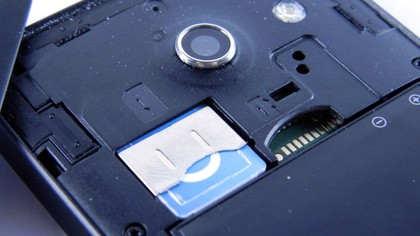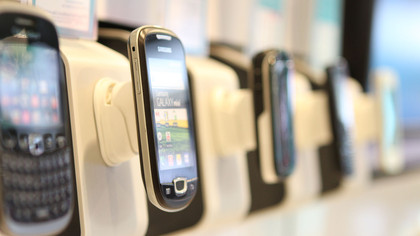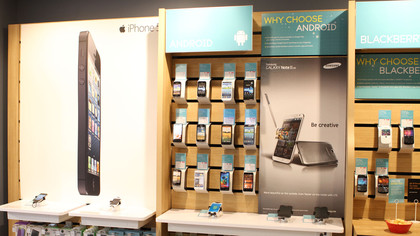How to unlock your phone
Set your handset free from the networks

Unlocking a phone can be a pain. We've all been there - your phone's locked to a network and you want to use it on a different one, or maybe just get it unlocked to increase the resale value.
Whatever the reason, with there being several different methods, different procedures on different phones and different policies on each network it can be a headache, so we're here to give you the knowledge to make it a little bit easier.
The first thing to realise is that unlocking a phone is perfectly legal in the UK. The main reason that networks are allowed to lock phones in the first place is because generally when a phone is sold locked it's at a subsidised price.
So essentially the network is paying part of the cost of the phone, and in order to make their money back they lock you in to their network. But that doesn't change the fact that you have the legal right to take your business elsewhere.

Before you look into unlocking your phone, it's always worth trying a different network's SIM card in it, just in case it's not actually locked at all. Sometimes phones are sold unlocked, even when bought from a specific network.
Ask your network
If your phone definitely is locked then you have several options at your disposal. Despite it being the network that locks your phone in the first place, they're also sometimes willing to unlock it for you (though they're not legally required to).
O2, for example, makes it incredibly easy. In fact if you're in a contract with the network then it will unlock your handset free of charge - though that won't get the contract cancelled.
Get daily insight, inspiration and deals in your inbox
Sign up for breaking news, reviews, opinion, top tech deals, and more.
Even if you're on Pay As You Go it will generally still unlock it for you as long as you've had the handset for at least 12 months, but there will be a one-off payment of £15, and depending on the handset it can take up to 14 days to do it. The only exception to all this is O2-exclusive handsets, which the network will refuse to unlock.

Vodafone will also unlock its handsets, though at a potentially higher cost. You can generally get a free unlock if you're on contract - or if you purchased your phone more than 12 months ago. Otherwise it will cost around £20. Sometimes the network will unlock your phone in just one day, but it can take up to two weeks.
EE is a little bit stricter with its unlocking terms. You need to have been a customer with the network for at least six months regardless of whether you're on a monthly contract or Pay As You Go, and either way there will be a fee of £20.42. It also takes up to 20 days to unlock a handset, which is slightly longer than most.
Three is in some ways quite lax in its unlocking terms, since it will allow Pay As You Go customers to unlock their handset any time, while if you're on a contract you can unlock it after the first 30 days.
It will also unlock the handset straight away where possible, and even when it can't it shouldn't take more than seven days. However it doesn't unlock it for free, instead charging a fee of £15.32 regardless of your circumstances.
It's also worth being aware that it's stated in its terms and conditions that it prohibits unlocking your phone "via any unauthorised manner (ie by anyone other than us or the device manufacturer)," so doing so may constitute a breach of contract.

Tesco Mobile will unlock Pay Monthly phones for free at the end of your contract period or for a £20 fee if you wish to unlock your phone before then. Pay As You Go phones can be unlocked for free after 12 months, otherwise again a £20 charge will apply. The exception to this is Pay As You Go iPhones, which Tesco won't unlock at all unless you've had one for at least 12 months.
James is a freelance phones, tablets and wearables writer and sub-editor at TechRadar. He has a love for everything ‘smart’, from watches to lights, and can often be found arguing with AI assistants or drowning in the latest apps. James also contributes to 3G.co.uk, 4G.co.uk and 5G.co.uk and has written for T3, Digital Camera World, Clarity Media and others, with work on the web, in print and on TV.